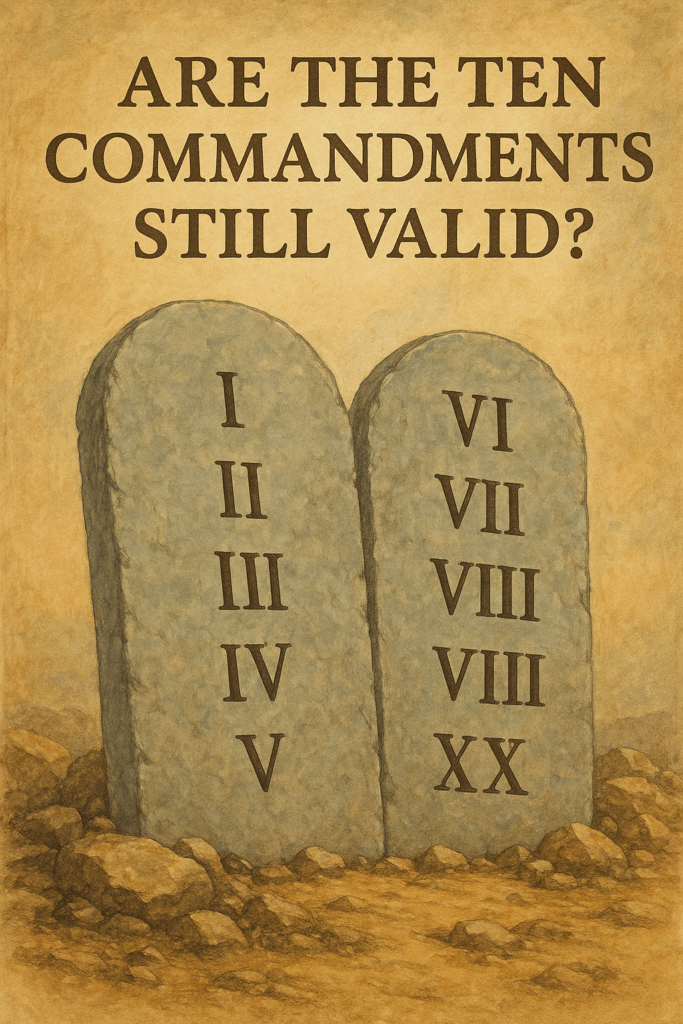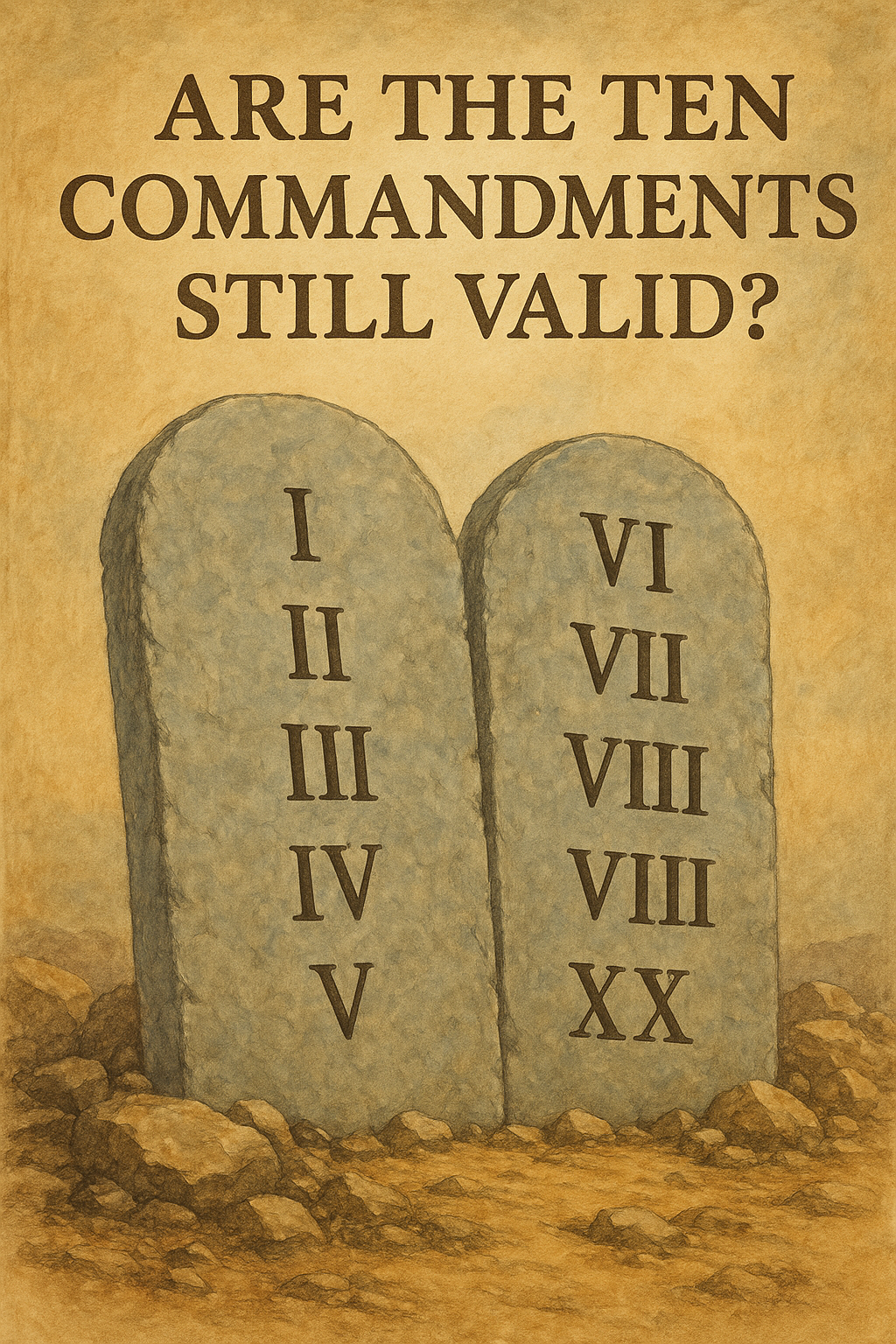As we have already seen, every theological endorsement of Sunday observance is without biblical foundation. The historical development of Sunday as a rest day is a long story. The introduction of Sunday as a weekly rest day dates to the end of the 4th century AD.
At that time, the Church wanted to unify the slowly emerging denominational differences around certain commonalities. In the course of this unification, Sunday was established as the weekly day of rest.
The Church’s problem was simple: the true followers of Jesus were growing in number—especially with each biblically Christian martyrdom carried out by the Romans.
The Church feared the loss of its own idol-worshiping adherents.

Rather than speculate further, we allow representatives of the Catholic Church to speak for themselves concerning Sunday observance (quotes taken from:
https://www.jetzt-ist-sabbat.de/der-sabbat/sabbat-oder-sonntag/224-50-zitate-katholischer-und-evangelischer-theologen-zur-sabbat-sonntag-frage-teil-2, accessed 2023-03-15 at 18:37):
“The Church has abolished the Sabbath, the last day of the week, as the Lord’s Day, and in its place has instituted the first day of the week, Sunday.”
(Cardinal M. Faulhaber, Pastoral Letter for Lent, Feb. 26, 1950)
Sunday was introduced by the Church we now call the Catholic Church.
“The Church transferred Sabbath observance to Sunday by divine, infallible authority. […] The Protestant who claims the Bible as his only rule of faith has no justification for observing Sunday.”
(“The Question Box,” The Catholic Univers Bulletin, Aug. 14, 1942, p. 4)
Here we are told unmistakably: Anyone who upholds Sola Scriptura has no right to treat Sunday as a weekly day of rest.
“It was the Catholic Church that, based on the authority of Christ, transferred the rest to Sunday. Therefore, Sunday observance by Protestants is a tribute they pay—willingly or not—to the authority of the Catholic Church.”
(Louis Gaston de Segur, Plain Talk About the Protestantism of Today, Boston, 1868, p. 223)
So a Bible-believing Christian who keeps Sunday is, knowingly or not, honoring the authority of the Catholic Church.
“Thus it happened that Sunday was legally and universally commanded by Church and State as a day of rest and sanctification. The Church herself changed the commandment of God: ‘Remember the Sabbath day, to keep it holy,’ to: ‘You shall keep Sunday holy,’ as found in our catechisms. So it was not Christ, but the Church, who transferred the Sabbath to Sunday—or formally abolished the Sabbath and replaced it with Sunday. The Roman Catechism also teaches this when it states, right at the beginning of Chapter III on the Sabbath: ‘It pleased the Church to transfer the observance and sanctification of the Sabbath to Sunday.’”
(Joseph Winkler, Canon of Lucerne, in Der Sonntag, pp. 52–53)
This is a clear admission of biblical unfaithfulness.
The biblical Sabbath was formally abolished, and Sunday was installed in its place.
Yet it is written:
“Now therefore hearken, O Israel, unto the statutes and unto the judgments, which I teach you, to do them, that ye may live and go in and possess the land which the LORD God of your fathers giveth you. Ye shall not add unto the word which I command you, neither shall ye diminish ought from it, that ye may keep the commandments of the LORD your God which I command you.”
(Deuteronomy 4:1–2, Luther 1545)
This instruction not to change the commandments is repeated:
“What thing soever I command you, observe to do it: thou shalt not add thereto, nor diminish from it.”
(Deuteronomy 12:32, Luther 1545)
Even Jesus told us:
“Think not that I am come to destroy the law or the prophets: I am not come to destroy, but to fulfill. For verily I say unto you, till heaven and earth pass, one jot or one tittle shall in no wise pass from the law, till all be fulfilled. Whosoever therefore shall break one of these least commandments and shall teach men so, he shall be called the least in the kingdom of heaven: but whosoever shall do and teach them, the same shall be called great in the kingdom of heaven. For I say unto you: unless your righteousness exceeds that of the scribes and Pharisees, ye shall in no case enter into the kingdom of heaven.”
(Matthew 5:17–20, Elberfelder 1905)
But what does the Law say concerning the Sabbath?
“Remember the sabbath day, to keep it holy. Six days shalt thou labour and do all thy work. But the seventh day is the sabbath of the LORD thy God: in it thou shalt not do any work, thou, nor thy son, nor thy daughter, thy manservant, nor thy maidservant, nor thy cattle, nor thy stranger that is within thy gates. For in six days the LORD made heaven and earth, the sea, and all that in them is, and rested the seventh day. Therefore the LORD blessed the sabbath day and hallowed it.”
(Exodus 20:8–11, Luther 1545)
And the Sabbath command is repeated:
“Keep the sabbath day to sanctify it, as the LORD thy God hath commanded thee. Six days thou shalt labour and do all thy work. But the seventh day is the sabbath of the LORD thy God: in it thou shalt not do any work, thou, nor thy son, nor thy daughter, nor thy manservant, nor thy maidservant, nor thine ox, nor thine ass, nor any of thy cattle, nor thy stranger that is within thy gates; that thy manservant and thy maidservant may rest as well as thou. And remember that thou wast a servant in the land of Egypt, and that the LORD thy God brought thee out thence through a mighty hand and by a stretched out arm: therefore the LORD thy God commanded thee to keep the sabbath day.”
(Deuteronomy 5:12–15, Luther 1545)
What is so special about this day?
Isn’t it ultimately irrelevant which day we choose to rest—whether Sunday, Friday, or Saturday? From a purely human point of view, it might seem like it doesn’t matter.
But for a follower of Christ, the correct weekly rest day is critically important:
“Speak thou also unto the children of Israel, saying, Verily my sabbaths ye shall keep: for it is a sign between me and you throughout your generations, that ye may know that I am the LORD that doth sanctify you. Ye shall keep the sabbath therefore; for it is holy unto you: every one that defileth it shall surely be put to death. For whosoever doeth any work therein, that soul shall be cut off from among his people.”
(Exodus 31:13–14, Luther 1545)
Our LORD tells us that the Sabbath is an everlasting sign between Him and us.
If we replace the Sabbath with Sunday, we are exchanging the eternal sign—and by doing so, we become unfaithful to the LORD once again.
And such unfaithfulness leads to eternal death.
Scripture also reveals the significance of the Sabbath in the future:
“For as the new heavens and the new earth, which I will make, shall remain before me, saith the LORD, so shall your seed and your name remain. And it shall come to pass, that from one new moon to another, and from one sabbath to another, shall all flesh come to worship before me, saith the LORD.”
(Isaiah 66:22–23, Luther 1545)
Even after the new earth is created, the Sabbath will continue to be kept.
Today, Sunday observance is merely a theological tradition—a tradition without biblical foundation.
If we truly want to surrender our lives to the LORD and follow Him fully, then we cannot simply exchange or ignore the eternal sign He has given us.

Leave a Reply to 일본직구 Cancel reply